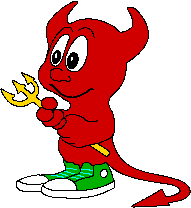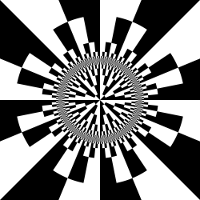[From a video script I wrote in 2019]

There is a notion that people are inherently evil, and that we must create systems, such as religion and laws to account for this. But, in reality, people are not inherently evil. Instead, as with any organism that has a survival instinct, people are inherently inclined to benefit themselves over others. Society is about foregoing some amount of self benefit so that the group, the society, can function well. And, the degree to which a person is altruistic or selfish depends on the system they are in.
The role of religion and society is not to remove the inclination of self benefit. The role of religion and society is to limit this inclination of self benefit so that the system, as a whole, can function optimally. If you look at driving, there are rules for driving. Theoretically, one can benefit by breaking these rules. However, when everyone breaks these rules, you get accidents, worsening traffic, chaos, and no one gets to where they are going in a reasonable amount of time. Instead of acting on self benefit alone, as a part of a cooperative traffic system, we follow rules to ensure the smooth flow, so that the cooperative system allows us to get to where we want to go in a reasonable amount of time.
But, often you have a small percentage of individuals in a system of rules who break the rules for self benefit. These rule breakers can benefit extraordinarily so long as everyone else follows the rules. In a working system, these rule breakers are adequately penalized so as to always keep the percentage of rule breakers low enough not to substantially disturb the cooperative system. But, if rule breakers are not sufficiently penalized, it leads to a death spiral of the system.
It is the system people find themselves in that determines whether people are more inclined towards cooperation or more inclined towards exploitative self interest. When people are raised in a cooperative, moral family setting, where the family works together for group benefit, people are more inclined towards cooperation. When people are raised in broken families, where the parents have split as a result of their selfish natures, where people see others in society benefiting from corruption and benefiting from breaking rules, then people are more inclined towards exploitative self interest. If rule breakers benefit, others see this and start to lose their inclination towards cooperation. Consequently, the number of rule breakers increases and the system eventually fails due to not enough rule followers for the cooperative system to work.
This spiral of non-cooperation and exploitation is part of the nature of the downfall of civilizations. The systems within society become more exploitative. And. people, responding to these systems, start acting more exploitatively.
Historically, the way to fix these systems is by replacement, wherein, when a civilization reaches the age of decay, an outside civilization eventually takes over. At the sub-civilization scale, if you want to fix a society, not by replacement, you must form cooperative groups within the society that eventually take over the society. In a way, Google, for instance, is such an occurrence of a group forming within a society and largely taking it over. And, it has done this by cooperating internally and exploiting externally. Power lies in unified groups. If you want a better society, you have to make one starting by building a cooperative group.
